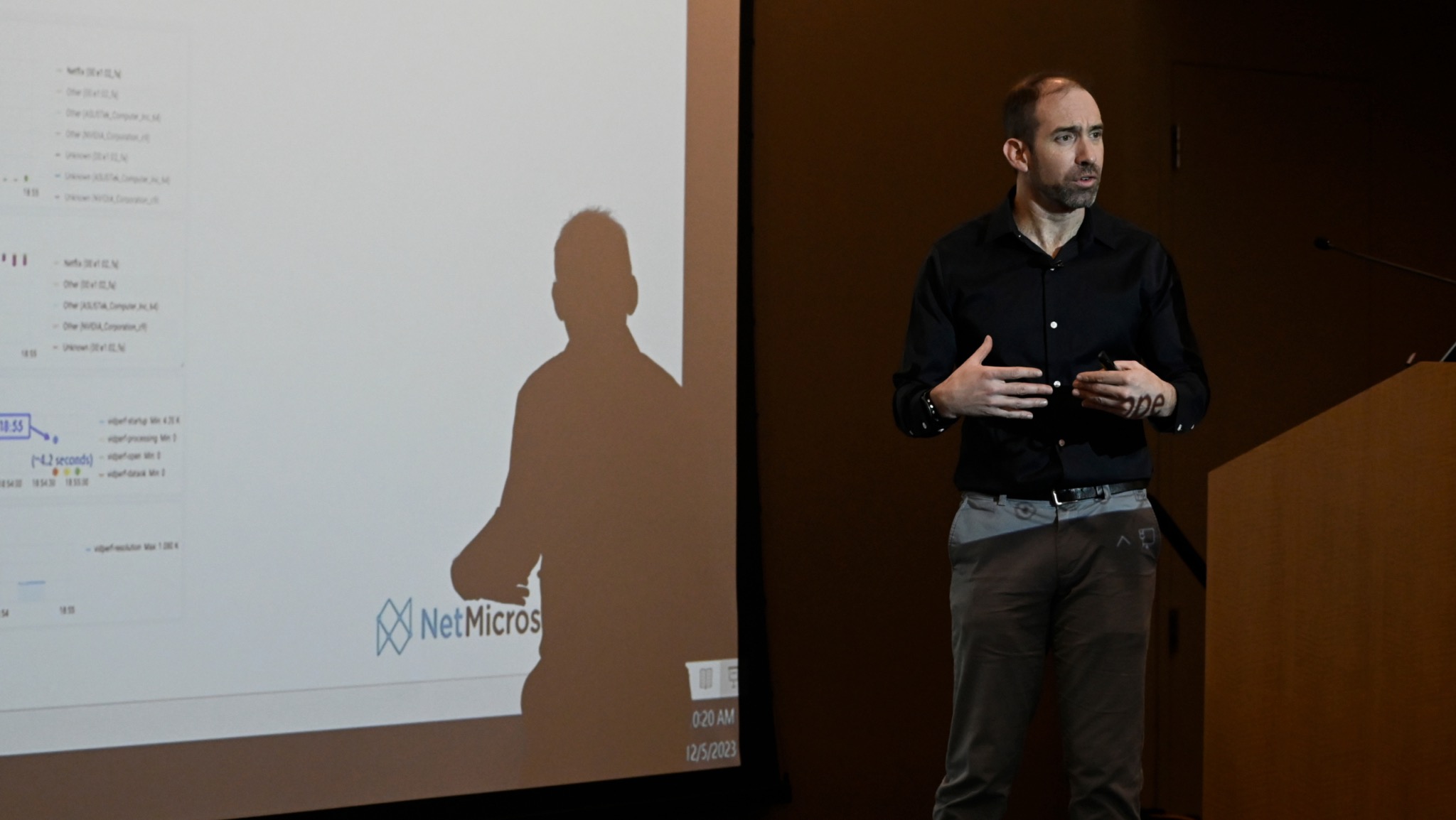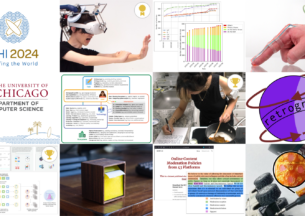NetMicroscope Uses AI to Improve Network Monitoring for a Better Internet Experience

Nick Feamster, Neubauer Professor of Computer Science at the University of Chicago and director of research at the Data Science Institute, has been working in network performance measurement for about 15 years. During this time, he has seen that the questions asked have increasingly addressed not just speed, but the general quality of the user experience.
Five years ago, these queries culminated in an article with the Wall Street Journal which examined internet use in coordination with researchers at Princeton University and the University of Chicago, including Feamster and longtime collaborator, Francesco Bronzino.
While complex in terms of research, the question was relatively simple: What is the relationship between internet speed and quality from video streaming platforms.
The findings? Faster internet doesn’t mean better performance.
The team has since continued exploring how to make real improvements in this space and founded NetMicroscope in 2021 to translate their work out of the University. The startup, which recently was awarded $200,000 from the George Shultz Innovation Fund, is disrupting network performance monitoring with state-of-the-art machine learning-driven approaches.
The solution integrates network performance metrics from a variety of data sources and integrates these to provide intelligence to network operators concerning the performance of specific applications in the network.
“Simply put – we are the first machine learning, AI, network quality measurement company,” said Bronzino. “While there are other competitors that can provide some aggregated view of high-level network metrics, we can provide much better insights that closely relate to actual application performance.”
Contributing factors to the user’s experience have become more multifaceted as the number and type of applications, such as video streaming platforms, has increased. Notably, this use spiked during the pandemic with the proliferation of virtual conferencing tools.
“As network speeds have increased, the speed of the access link is no longer a limiting factor in application performance. It’s often network latency and packet loss,” explained Feamster. “We went from measuring something in a single dimension like speed, and that being indicative of experience, to something more nuanced and complex.”
The issue is pervasive – and one that everyone faces. “When things don’t work it affects the quality of our work and our play,” noted Feamster, who also is the director of the Network Operations and Internet Security research lab and founder of the Internet Equity Initiative.
For NetMicroscope, the goal now is to continue building relationships with potential customers, and for Feamster, bringing the product to market has been another interesting challenge to solve.
“In research, especially computer systems research, we can convince ourselves we’ve done something useful, but it’s a different validation of the ideas to see that not only is it interesting but that someone is willing to pay for it,” he said.
Feamster has been working with the Polsky Center for Entrepreneurship and Innovation to explore the commercial potential and advance the work, including participating in the I-Corps program and Compass accelerator before the Innovation Fund. “We’ve been able to make use of a lot of resources here at the University,” said Feamster.
// About the George Shultz Innovation Fund
Managed by the Polsky Center, the George Shultz Innovation Fund provides up to $250,000 in co-investment funding for early-stage tech ventures coming out of University of Chicago, Argonne National Laboratory, Fermilab, and the Marine Biological Laboratory. Learn more here.













